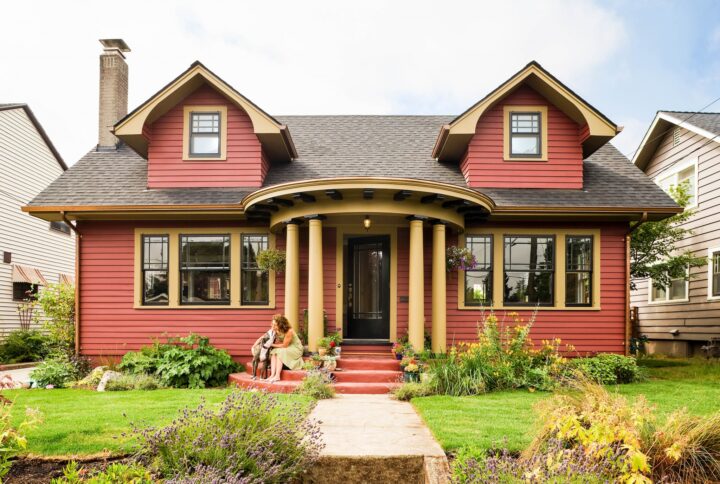What Is Earnest Money?
When you write an offer to buy a home, you typically need to show you have skin in the game right away. This comes in the form an earnest money deposit. Read on to learn more about this initial deposit.


Written by Jessica Rapp on November 10, 2024
Key takeaways
- Show the seller you’re serious with a good-faith deposit (usually 1%-3% of the purchase price).
- Funds are held in escrow and applied toward closing costs or the down payment.
- If a deal falls through due to contingencies, the buyer may get the deposit back; without them, it can be forfeited.
Earnest money is an upfront deposit that you make as a buyer when planning to purchase a home. It’s sometimes called a good faith payment because you’re proving to the seller that you have every intention of buying the home if your conditions are met. The earnest money deposit is usually large enough to keep you committed to moving forward with the home purchase while also giving the seller enough confidence to stop accepting new offers. To ensure the deposit’s safe keeping, a neutral third-party will hold the earnest money until the purchase agreement is either completed or terminated.
What is earnest money used for?
When buying a home, an earnest money deposit is used to show the seller that you, as the buyer, are committed to purchasing the property from them. To prove their good faith, the seller will take the home off the market. Then both of you can move one step closer toward closing.
Assuming the deal goes through, your earnest money will be applied toward your down payment when you close. In the event that you decide to back out of the deal for any reason not covered by a contingency in your sales contract, the seller may elect to keep the money to compensate them for holding the property for you when they could have been attracting other offers.
Are you interested in buying a home? See how much you pre-qualify to borrow with us at Zillow Home Loans*, and get expert guidance from our loan officers.
How much is earnest money?
Earnest money deposits are usually 1% to 3% of a home’s purchase price. For example, a $300,000 home will require an earnest money deposit between $3,000 to $9,000. Your real estate agent may recommend a different percentage depending on local practices and current market conditions. The more competitive the market, the higher the deposit you may need to make.
How much earnest money should I put down?
If you’re at the point of putting earnest money down on a property, you’ve most likely already come to the conclusion that you love the home and want to make it yours. Your earnest money deposit should reflect that. Your real estate agent will help you determine a competitive earnest money deposit for your area. Often, a seller will ask for either 1% to 3% of the purchase price or request a set dollar value, like $5,000 or $10,000.
Are you planning out your home buying budget? Estimate your budget using Zillow’s Affordability Calculator.
An earnest money deposit isn’t always required, but it’s customary and even more important if you’re shopping in a competitive market. If you’re going up against other offers, sellers are likely to choose an offer that includes an earnest money commitment, as it provides them with extra assurance.
When is earnest money due?
Earnest money deposits are typically due within three days of the buyer and seller agreeing to a purchase contract in writing.
Who holds earnest money?
Up until closing, your earnest money deposit will be held in an escrow account. Depending on where you live, the account will be overseen by either a third-party escrow company or real estate attorney — typically the same entity that will handle the closing for your home purchase. The third-party holding the earnest money makes certain that the funds are dispersed appropriately based on the terms of your agreement with the seller, whether that means applying the total to your down payment on closing or refunding the money to the correct party if the deal falls through.
How do you pay earnest money?
Earnest money deposits are usually made with a cashier’s check or wire transfer. Personal checks are rarely accepted. Your escrow company or real estate attorney will provide instructions on how to make the deposit. Always verify the recipient and deposit details to avoid (unfortunately) common scams.
How to show your lender proof of earnest money deposit
You can show proof of your earnest money deposit using a receipt from the escrow account holder and a copy of your bank statement with the withdrawn amount being cleared or a copy of the check for the deposit.
Your lender will want proof that you made an earnest money deposit to account for the large withdrawal from your bank account. This is because when you’re buying a home, lenders want to make sure you have all the money you need to pay closing costs and complete the deal. Big purchases during your underwriting process can affect your ability to close and make a lender less likely to approve your mortgage application.
What happens to earnest money at closing?
Your earnest money will stay in your escrow account until you officially close on the home. Once you close, the earnest money will be applied toward your down payment, and any excess will be applied toward your closing costs or refunded to you by the escrow holder.
Is earnest money refundable?
If your deal doesn’t go through for some reason, the total earnest money deposit will be paid to the seller or refunded to you. Your purchase contract includes contingencies that spell out when the earnest money is refundable and when it becomes nonrefundable.
For example, if you’ve included a home inspection contingency in your offer and the home inspection reveals severe construction defects, you may choose to cancel the home purchase and your earnest money deposit will be refunded. Similarly, if you’ve included a financing contingency and your financing falls through because of appraisal or approval issues, you’ll get your money back. However if you change your mind or back out of the deal for a reason not listed in the contingency, the seller may elect to keep your earnest money.
Can you lose earnest money?
It’s possible to lose your earnest money if the deal falls through. If you back out of the deal without the use of a contingency, you’ll forfeit your money and the seller will be allowed to keep it. Even if you have contingencies, you may lose your earnest money if you cancel the deal after your contingencies have passed their expiration dates.
How to protect your earnest money deposit
Since earnest money deposits can be several thousand dollars, it’s important to take steps to protect your money. Use an escrow account, understand the terms of your contingencies, meet your responsibilities and make sure everything is in writing. Be sure to keep open lines of communication with your real estate agent and lender, as they are great resources for helping you navigate the complexities of your transaction.
*An equal housing lender. NMLS #10287
How much home can you afford?
At Zillow Home Loans, we can pre-qualify you in as little as 5 minutes, with no impact to your credit score.
Zillow Home Loans, NMLS # 10287. Equal Housing Lender
Get pre-qualifiedHow much home can you afford?
See what's in reach with low down payment options, no hidden fees and step-by-step guidance from us at
Zillow Home Loans.
Zillow Home Loans, NMLS # 10287. Equal Housing Lender
Calculate your BuyAbility℠
Related Articles
Get a mortgage with Zillow Home Loans
Go from dreaming to owning with low down payment options, competitive rates and no hidden fees. A dedicated loan officer will guide you until you have your keys in hand.

Zillow Home Loans, NMLS #10287. Equal Housing Lender.



